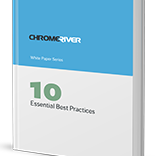 Armed with a calculator and a pencil, you compare an employee’s expense report to her receipts and find a mathematical error. Congratulations: You’ve just saved the company $35. The only problem is that auditing these business expense reports can easily end up costing more than it saves, especially if you manually process the reports.
Armed with a calculator and a pencil, you compare an employee’s expense report to her receipts and find a mathematical error. Congratulations: You’ve just saved the company $35. The only problem is that auditing these business expense reports can easily end up costing more than it saves, especially if you manually process the reports.
Whether you’re catching innocent errors or uncovering malicious fraud in business expense reports, these five tips can help your organization identify and resolve mistakes in a cost-effective manner.
- Implement automated expense management software. Using a centralized, automated system for tracking business expenses can prevent many errors up front. Customized business rules can help ensure expenses comply with an organization’s defined policies and that approvers are able to review items before authorizing reimbursement. With this foundation, a secondary audit review further helps to avoid cost leakage.
- Create a structure for intelligent auditing choices. You can’t double-check everything. Focus on the expense submissions that require the most attention. Use a strong rule set to analyze business expense reports, compile expense attributes and the expense submitter’s profile, and automatically trigger an additional review for higher risk reports.
- Simplify the resolution process. For cost-effective auditing, it’s important to streamline every step. Using an automated system can save time by ensuring that audit triggers and intelligent samplings appear in the audit queue marked clearly with an audit concern.
- Track and standardize communications. There’s no need to write a new note every time you request additional documentation for an expense. Auditors can use an automated system to send items back to employees with predetermined replies and any notes, and they can maintain threaded discussion records for the transactions that need to be reviewed.
- Record all corrections. When an expense must be adjusted, it’s vital to maintain records of the correction. Auditors can then review prior business expense reports to identify patterns of abuse, which may indicate a need for further policy clarification.
Auditing business expense reports manually can easily end up costing more than it saves. For many organizations, an automated audit system offers a cost-effective solution for identifying and resolving errors.
What additional tips do you have for catching errors and fraud in business expense reports? Share your feedback!
Subscribe
Latest Posts
Posts by Category
I just love the Chrome River application. I could probably sell it! Finance Administrative Coordinator Law Firm, 800 Employees
Can’t we just move year-end, so that we can roll out Chrome River sooner!? Financial Systems Director Law Firm, 300 Employees


Comments